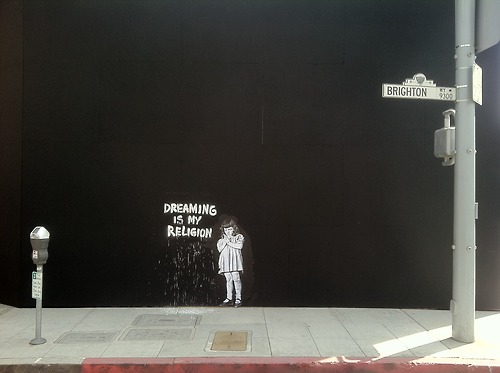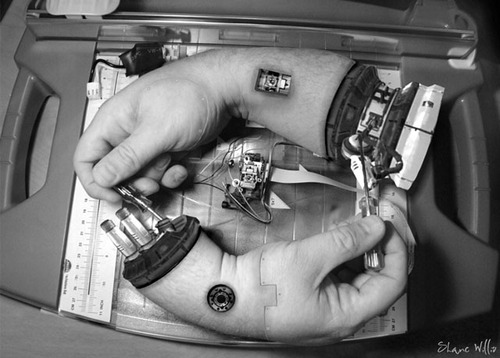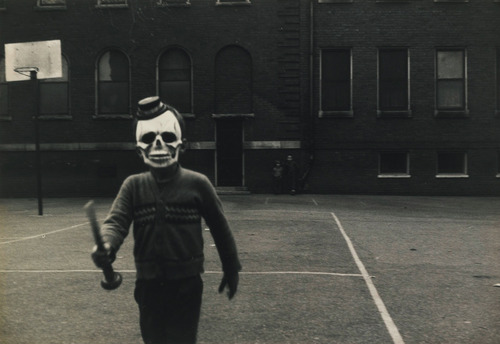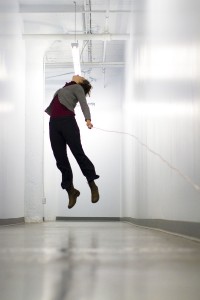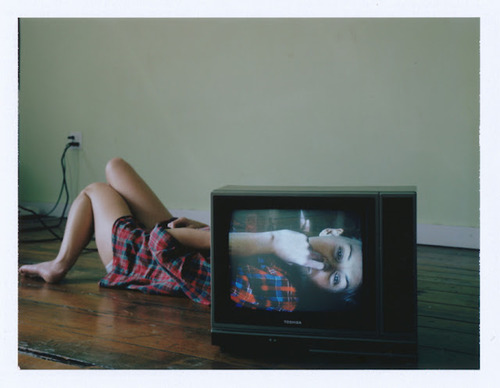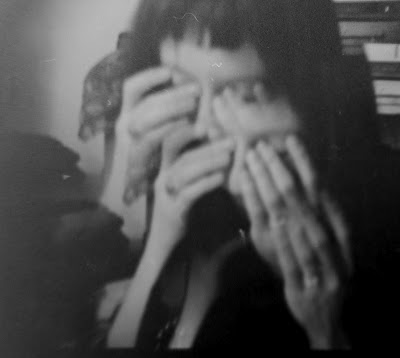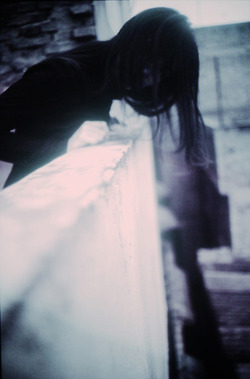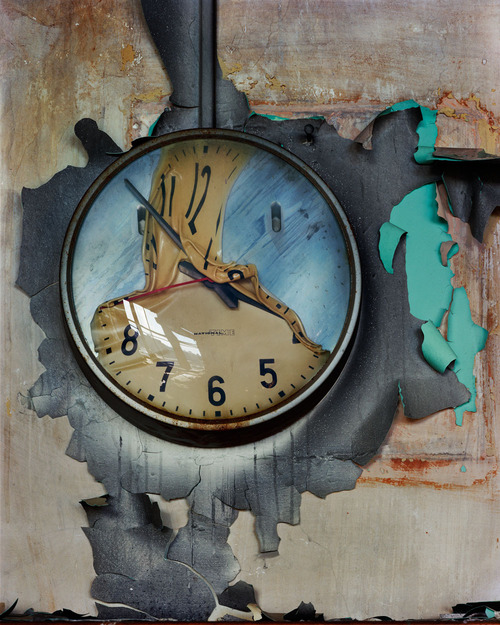(Octopus Garden talk, September 30, 2012)
1st Prelude
Sometimes my unconscious puts the breaks on and says: let’s stop here. For the last month, it’s been 14th century France. Every dream is set in a small village, and the really cool thing is that I finally get to speak French. I don’t actually know how to speak French, so what it feels like I’m doing – or what it feels like the person who wears my face in these dreams is doing – is that he acts like a ventriloquist. Like all of us, this guy’s busy throwing someone else’s voice, throwing someone’s voice out of his mouth. Isn’t that what language is? An endless quotation. And because I don’t speak French, I can’t understand a word he says, so I’m always waiting patiently, night after night, for the reaction shot, the look on her face as it relaxes into a smile as large as the night sky, the look on his face as it sings with understanding.
Maybe the best part of the village is that it’s like the TV sitcoms I’d watch when I was a kid – they’d always have the same characters. Every night, the people I meet in the village, are the same people, wearing variations on the same clothes, on their way to the same market. At night, in my dreams, I live in a little village, and during the daytime, I live in a little village in my city, I make a little village out of my city, carving it up so that it’s just a few streets, a few faces, a couple of yoga studios. It’s where I like to throw my voice, the voice that doesn’t belong to me. Maybe it’s your voice I’m throwing now.
Second Prelude
This is the second part of the beginning. It’s Friday night, and I’m going to meet up with my excellent friend Ronit. I decided I can’t remember when exactly, a few years ago, that I would be sure to be too busy for any of the important things in my life, which means that we hardly see each other. But when we did, one of the things we liked to do was to take out our armour, our armours of storytelling, and we’d slowly give each piece a rub and a polish. Mmmm, we’d like to rub our storytelling armours shiny and smooth, we liked to let those stories of our pasts roll out of our mouths until we are both standing resplendent and shining and beautiful in our perfect versions of the people we used to be, that we like holding onto whenever we see each other, or at least, we like holding onto their beauty, the rhythm of the line, the swoon of the colour, even if the story is about heartbreak and betrayal and cruelty, in fact, we take a special care with these emotional relics, we polish them extra smooth, so that we can admire them too. But tonight, when we see each other, I can feel that she’s pushed on, in fact, the plan is to dance out all these old certainties, and leave them behind, but too many others had the same idea, so we can’t get in. Instead, it seems we’re going to walk it off, there’s a park she has an inkling of nearby, some people can do this with underground water, or oil, others have park antennaes. I just follow along.
Have you ever had this happen, that you’re walking along with someone and then they’ll be saying something and then they’ll just stop. It’s as if the thing they’re going to say has so much motion in it, that if you walked and talked at the same time you would be flung headlong into traffic. So they stop, and somehow you are only the falling tide of their words, so when she stops you stop too. And then she says this beautiful thing which makes you realize right away that she’s put the suit of armour down, and more than that, that somewhere, without you know really knowing when it’s happened, or even how, you’ve put yours away too. She turns to you and asks, “How long have you been dead?”
Usually you’d cover the reaction shot with a quick countercheckmate, only your shiny armour is laying on the ground. So you have two choices. The first choice is to take this statement and turn it into a thing, and hold it in your hand and examine it from a close distance. See how beautiful it is. This can look a lot like listening, but finding it beautiful – how long have you been dead? – is an excellent way of disarming the bomb of that sentence. There’s a little fuse in here, and I’m going to find it and pull it out, so that these words can’t hurt me. That’s door number one.
Door number two means eating the bomb. You try to take it, try to let it touch you. But the thing about those few words is that it’s a very large question disguised as a short question. Some people are like this too. They’re actually very small people, but they come disguised as large people. Our elected officials, for instance. So in order to get to the other side of the question you have to stretch your body out, you have to stretch until you’re on the other side of death. What’s important is not to answer the question. You’ve left your certainties behind. That’s the armour at your feet. You try to stay with the question. Try to stay with the feeling of it. And just as you’re feeling it entering your kidneys, puffing them out like a pair of inflatable rafts, she comes right back with her second and final series of questions: What do you get out of it? What kinds of pleasures are waiting for you there? When you’re dead.
The Secret of Pleasure
The Buddha leaves home, he leaves behind everything he knows. Sometimes you turn the corner and you’re no longer in the same city. And the corner is the look on her face, it’s the news of his death, it’s the operation. You turn the corner and you lose the meaning of the word home because your life is not the life you used to have. You plunge, you are plunged into not-knowing, into this state of not knowing. Such an important place. When you’ve already made up your mind – I’m a good person, I’m an angry person, I’m a sick person – it’s so hard to feel this ground, this ground here.
Leaving home. The Buddha left so many homes. For instance one of the dominant faiths in his time was the Vedic religion, and in fact a lot of folks who would join his sangha, his group and community, were very serious practitioners of the Vedic religion, and as a result a lot of his imagery is drawn from this faith, because the Buddha above all was a very practical guy. He spoke in this room, in this way. Not for all time and forever, he spoke to each person – so sensitive, so sensitive – to the conditions of the moment they were in together. He’s the one who doesn’t write, like Socrates, he’s moving his words so that the listener can hear them. I’m not talking to everyone, I’m talking to you. To archers he spoke about arrows. To farmers he spoke about farms. Because the conditions are always changing. Arising and passing away. Our conditions are arising and passing away. As we walk with impermanence. And in order to feel this impermanence, this arising and passing away, it can be necessary to leave home. To leave behind our certainties, and even worse and more troubling, the certainties of others. Perhaps we could call it: the necessary disaster. Thank you. Thank you necessary disaster.
In the Vedic religion, the liberated seeker, the serious meditator withdraws attention from the world of sensation, the confusing seductive world of smells and touches and temptations, and the sage goes into the inner world. And from this inner world, this quiet interiority, the sage finds unity with one’s “true self” and then of course God. This unity transcends all worlds, it has nothing to do with this phenomenal day-to-day world. This is the dominant religious idea at the time of the Buddha. And he makes a radical break with this idea based on… speculation? Arguments with friends? Philosophy? No. Based on the authority of his own experience. Remember his nearly last words to Ananda. “But Buddha, who is going to come after you? You have to pick someone, otherwise how will the dharma survive?” “Ananda,” the Buddha says, “you are your own authority.” Your experience, this is what he emphasized. To see clearly your own experience.
Can you feel for a moment how radically different this is, than a traditional religion, which so often sets up a priestly class? A kind of middle man, or middle management, between the world up there and the world down here. The expert, the one who knows, the special ones. The Buddha says you are the special ones. Your experience is what you have to trust. And not someone’s else ideas about your experience. Like the kind I’m offering now. Not some borrowed opinion about your experience. He is inviting us to leave home, to leave the certainties of our home behind, and plunge into not knowing. Who am I today? She said no, or at least she didn’t say yes. I feel so sad, so heavy. And tomorrow, another version, another face, another presentation model passes through the frame of awareness.
The Buddha had his own experience of enlightenment, and it cut against the grain of the received wisdoms of that time. The Vedic practitioners, that would form the roots of Hinduism centuries later, they were interested in transcending this world. But what is the second most often repeated gesture of the Buddha? When we see the Buddha striking a pose, it seems he always looks like this: (sitting meditation). Or else he’s doing this. (Touch the ground) It’s the first thing he does after his enlightenment, after his awakening. He touches the ground. This ground, this tanna. As if to say, “I am awakening to this ground here, these conditions arising and passing away.” Awakening is not some permanent state, it’s not like a five star hotel, oh at last I’m here! A means being here. What do the poker players say? I’m all in.
But the question I wanted to ask you is: how did the Buddha get there? How did he get to say, like the poker players: I’m all in. How did he make this big u-turn from this world is filled with temptation and distraction and suffering to hey, the whole deal, the whole thing of enlightenment is turning to face whatever is arising right here, right now. That is a major u-turn. How the hell did he do it?
Tangent
I’d like to take us on a tangent, I don’t know if we’re going to be able to crawl all the way back, you can let me know. I’m going to have to change some names to protect the innocent. Innocent? So about a year ago, a little more than, I suggested to someone that I didn’t really know all that well, that we do this talking practice. It’s very simple, it’s very complicated. Words. Sometimes they melt in your mouth and they taste so good. And then you realize, oh, they’re not melting in someone else’s mouth at all. So this is how it works.
It’s a yoga thing, but you don’t have to wear your fancy pants. It’s a way to turn the first limb of yoga into a practice. Yoga is, at least as Pantanji describes it, yoga is ashtanga, or eight-limbed. It has eight bits or eight parts. And the first part is called the yamas, or the restraints or ethics. Yoga begins with relationships. So in the talking practice you take one of the five yamas, say the first one, non-harming, ahimsa, and you work with your partner, your talking practice partner, and one of you blabs away for 20 infinite and never ending minutes about ahimsa, non-harming, in your life. You tell the story of your life, the story of yesterday in fact, and the day before yesterday, you meet every week, so you recount the events of the week using this lens of non-harming. How did I harm? How did I not-harm? And it’s not about blame, or guilt, or feeling bad. And then after 20 of the longest minutes of your life, then the other person talks and you listen with your whole body. It’s really great. And then when the two of you are done, you have a chit chat, and one of the things that’s really important about your chit chat is that you’re not trying to fix each other, you’re not a doctor or an expert. You’re there to hold space for each other, you’re there most of all to listen. And in that space of listening and holding, so much becomes possible. You start to say things for instance that you didn’t know. You throw other voices out of your mouth. In other words, you start to speak from the choir of your unheard voices. It’s terrifying. It’s really great. And the talking practice arrives so often, so often, at the story behind the story.
So I’ve been doing this with let’s call him Max. To the max. To thine own max be true. And um, one of things about Max, is that he’s such a great person, so unfailingly generous. You know if you took an electron microscope and you laid his arm underneath you would see these little cells of generosity floating around. And he’s kind and he’s not kind in that I’m going to make myself so little so that you can be bigger, no, no, he’s big too, you’re both big in his eyes, he’s so kind and beautiful and smart. But here’s the thing, over and over again, I realize: that his virtues are a secret. Oh, it’s a secret. He’s a secret for himself. I’m so generous. I’m so beautiful, so kind. I’ll keep that a secret. It was so confusing to me. I always thought that the secrets you kept about yourself were like shameful, terrible things. Lies, betrayals, secret addictions. Whatever. You don’t hide your good qualities. No, no, those are the leading ladies, those are the versions of yourself that you are always pushing to the front of the stage. Go on, go on, just stand up in front of them and sing. Who is it out there anyway? Who is out there standing in front of the portal of myself? Oh god, it’s my father. Just go and tell him those things you always say, the ones that make him stop feeling anything. Those charming, witty nothings. You push your good faces out to meet dear old dad so he’ll never know, he’ll never touch your darkness. And some of your good selves, they’re aging faster than some of your other selves because they’re always under those bright spotlights. No wonder you have to chip all that heroin on the weekend. Never mind. And the shiny versions of yourself, sometimes they can get so tired, oh god do I have to out there again? I just did five witty rounds with dad, can’t I sit on the bench while some of the others do some heavy lifting? Look, look: here’s distraction and indifference. They’re all fresh faced and rested. Coach, why don’t you send distraction and indifference out to talk to – who’s out there now? Oh god, it’s my yoga teacher. Put away the cigarettes.
This is how I imagined the self, as a rotating roster of poses and postures, of self presentation models. Who am I today? She emailed me this morning. As a result I’m lighter than air, I’m floating just above my sneakers and even if there’s bad news steaming through my receptacle pores, nothing is going to touch my good feelings today. Yesterday I weighed 400 pounds. Today the scale doesn’t even register I’m on it.
So here’s the strange thing. Max can’t see, refuses to see, the good things that he does. The good things that he is. There’s this fundamental glitch in the perceptual field. And unlike the hated, dreaded, repressed memories of my bad childhood that are cowering, you know, somewhere in the basement, the mouldy corners, this perceptual glitch is right here, right smack in the middle of the perceptual field. And it’s as if Max is looking at a scene, and in the middle of the scene are all the people he’s making them feel so good, and instead of seeing the shine on their faces, his eyes loop around the evidence. His understandings take this strange careening turn around the evidence – oh that’s not me – even when someone, someone like me for instance, is standing right in front of him telling him how wonderful he is, he can’t see it, he can’t absorb it. It’s as if his goodness, his basic fundamental excellent beauty as a human being, is all written in a code he never learned. It’s a language he never spoke.
And then I met someone else. Someone who doesn’t look like Max, smell like Max, listen like Max. This person, let’s call them Jeremiah. I love watching Jeremiah light people up. He would walk up to you, and he would touch you in a certain way, and his face would open and you would open right along with him. He has this real contact encounter practice, he’s a genius with his social hands which is tricky in our hands-off culture. Sofar as social interactions go: look ma, no hands. This is the ideal, right? This is the strived for, hoped for ideal in Ontario. But Jeremiah has this magic, he gets up to you and he does this little thing, like he’s a tailor of the intestines, like he’s a chef of your liver, and he’s just rearranging things, ok?
What’s crazy is that he looks, that is to say he presents, as the most open person in the room. He throws himself into your arms. Here I am, I’m holding nothing back. He’s so flash that he opens the room just by walking through it,(And this is the way he keeps his secret, he holds onto himself in a far away place, only he’s so close you don’t notice. That’s the thing, you don’t notice, he’s so far away because he’s so close. There’s a small voice, it’s so faint, can you hear it? I can’t hear it. It’s so hard to hear, and he doesn’t want you to hear it, and he wants you to hear it. (This is how he holds his fear, his difficulty.) wherever he goes he leaves behind a wake of smiles, such a beautiful person. Only he doesn’t see it. The reaction shot, the effect, the shine he leaves behind, it doesn’t register. He has no idea. I mean no idea. Oh. You mean first Max and now Jeremiah? Maybe they’re not eating enough chocolate. What was it Erin said? There’s not enough humping going on in this house.
But maybe, I’m wondering to myself, I’m wondering to you now, maybe you have this too. This glitch in the middle of your perceptual field. Maybe the buried and repressed and unbearable aren’t simply the ruptures in our development, the signal traumas of our pasts, but what might be added to this list are what one wag named, “our better nature.” The best part of our selves. Can you say yes to the best part of yourself? And if the best part of our self can’t be claimed, can’t be acknowledged, can’t be admitted, if we can’t open the door and recognize, “oh that beauty is my beauty, that kindness is my kindness, that love is my love,” if we can’t recognize our own beauty, then we’re making a cut, we’re cutting a figure as the artists like to say, we’re cutting ourselves away, even as we’re cutting away the ground beneath our feet.
How long have you been dead?
My fantasy, could I share with you my fantasy? My fantasy is that Max and Jeremiah could leap into my skin for just a moment. An instant. For an instant they would see, they would know, what I know. They would see themselves through me. They could see how beautiful they are, because they could see with my objective eyes that are busy with avidya, seeing things as they are. Seeing and feeling the beauty that they are. I think this is one of the gifts of friendship. We try to do this for each other, without even trying. There’s another way of saying this of course. You could also say: that the heart of friendship – could we call it the practice of friendship? – means recognizing someone as a Buddha. That the way, the path of the bodhisattva, the one who serves, is to recognize, is to see past the perceptual glitch, and to give you the gift of yourself. That beauty, that wonder, that joy, it’s you, isn’t it? And in that moment, that moment of recognition, that moment of practice, my secret dissolves, and your secret dissolves, and we’re here, we’re just here, practicing on this ground, in this room, together.
What I’m suggesting is that the heart of the practice is actually pleasure. The pleasure of your company. The pleasure of sharing the pleasure. How very good it is to see you. To see you this way. Along this path. On this ground.
OK, so we’re going to leave Max and Jeremiah and maybe yourself, on the shelf for a moment and return to the Buddha. He’s left home, OK, and he’s wandering and he’s decided to undertake some very serious privations. He’s hardly eating anything at all, he’s in the company of some deep religious seekers, they’re hardly eating anything, they’re dedicated to meditation, heavy concentration practice, breathing in, breathing out. And then one day the Buddha has a memory. Of course this memory involves a tree, trees are always so important for the Buddha. The inner landscape, the outer landscape, kiss me I’m a whole forest. I’m nothing but trees. So he has this memory of being a kid underneath a tree, and his father’s around, this is really important. His father’s nearby but not in any directing way, he’s just around. You could say, in the language of Winnicott, that his father is holding a space, like the way the talking partners hold space for each other. And the Buddha, young Buddha, little boy Buddha, he spontaneously begins to meditate. First time it ever happened. This is what life before television must have been like. So this is the memory. I’m sitting underneath a tree, my father’s nearby and I’m meditating. But this is crucial, this is crucial. The Buddha doesn’t stop there. Because the first formerly known as noble truths, is a task inviting us to fully know dukkha. To fully examine our conditions. What did I feel as a young boy? What were my sensations underneath that tree? And the answer: I felt pleasure. Why? He feels pleasure in simply being there. Have you ever had a pleasure like this? It’s so pleasurable just to be here, nothing has to happen, don’t say another word, or say another word, it’s fine. Everything is fine just the way it is.
But this insight is not enough for the Buddha, because he is a scientist, he is compelled to know more. And so he performs a radical act of psychology and arrives at this insight. The fact of this pleasure makes me feel fear. The memory of this pleasure makes me afraid. And why? Look at him: he is wearing rags, so thin, his hair is falling out, his body so malnourished, burnt by the sun, mistreated. Why is he afraid of this childhood pleasure? The Buddha is so determined to see clearly, to know, from his own experience, to let his own experience be the authority. He feels fear arrive with this memory, and in his words, “It is pleasure that has nothing to do with sensual desires and unwholesome things.” In other words, there is pleasure but there is no craving. Pleasure doesn’t arrive because you got what you wanted. Instead, pleasure is part of this, part of this ground, pleasure, the pleasure of being here, is an intrinsic part of being here.
This is such an important moment for the Buddha. Because it is at this moment that he leaves home for the second time. He leaves his second home, he leaves his friends. His friends are starving, just like him. They haven’t eaten in days. They are trying to transcend this world, to become part of, to join with, to enter into a union with something greater. But triggered by his childhood pleasure, the Buddha returns to this place, this seculum, this secular world. And he realizes: this world doesn’t need to be pushed away. It’s not fundamentally bad, it’s fundamentally pleasurable. Easeful. And so he renounces the renunciants, he turns away from his friends who shake their heads, “Oh our friend is lost. Look at him, he’s eating rice. Oh, the poor man, he’ll never understand, he’s lost his way, he’s weak, he’s giving in.” But the Buddha finds what he describes as the middle way. He’s still guarding the sense doors, he’s not reveling and indulging in things, but he’s not pushing the whole world away. He steps through his fear, and what is it that he fears? He fears his pleasure. He fears the pleasure of this, this ground here, he steps through his fear, and gives himself over to this conditionality, these conditions, this moment.
From Mark Epstein’s excellent Going on Being (2001). “The Buddha’s admission of fear at the time of his memory is very interesting. It is not just the Buddha who is afraid of this pleasure. Many of us take our early intimations of Buddha nature, our spontaneous expressions of love, imagination and joy, and contaminate them with self-hatred when things go wrong in childhood. We drive them into exile for reasons that are unique to each of us. Feeling unrecognized or undeserving, we relegate that spontaneous expression to some hidden or forbidden fortress that is then lost, even to ourselves.” (p. 70)
How long have you been dead?
The middle way is also the story of the recovery of a lost pleasure, a forgotten pleasure, of being in this moment. I think we’ve all been there, at least for an instant. In that timeless time, when we’re laughing or playing or allowing ourselves to be touched, or singing, or on our bicycles, or under a tree, or whatever in our life looks like, feels like, a tree. Do you know what the trees are in your life? Do you sit with them? Do you hunker down with them often? Or do you save them up and dole them out because you think you’re going to run out of trees? You’ve already shown everyone around you that you can stand your pain. You’ve grieved the losses, you’re still standing. The inevitable wounds, you’re not afraid to show them now. You’re standing on the front line of your life, absorbing the slings and arrows. But can you bear your pleasure? Can you? Can you bear your loveliness, the way you create joy, the way it spreads from your face and becomes his face and hers? Can you let go of the old familiar stories, the ones that are always telling you what you are, or what you should be, or who you used to be, or who you used to want to be? Can you let the choir drop for a moment, long enough to hear the sweetness of your own music, the way the rest of us hear it?
Could you pick up the invitation of the first formerly known as noble truth, to fully know dukkha, to reach across the fathomless rift of your fear and find your beauty waiting for you there, waiting for you here, here, in this moment?
